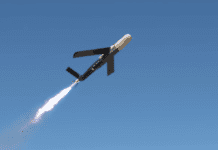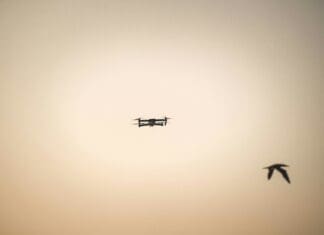This post is also available in:
 עברית (Hebrew)
עברית (Hebrew)
Cutting-edge AI technologies will be showcased at the iHLS InnoTech Expo Tel Aviv in November 2020.
The application of artificial intelligence technology can achieve incredible results, but cannot always work alone. The increasing role of artificial intelligence technologies at the battlefield has created new dilemmas. To what extent can human soldiers trust machines team-mates?
Technological solutions are under development, but their incorporation into the battlefield is still rare. Experts evaluate that there is a psychological barrier to count only on artificial intelligence technologies. Undoubtedly, all military forces have been working on the development of these capabilities.
The challenge concerns human-machine collaboration. This is especially evident at the multi-domain operations (MDO) context, a joint warfighting concept that foresees conflict occurring in multiple domains: land, air, sea, cyber and space.
Soldiers need to gain the most value that they can from AI-based ISR assets. To achieve this, they will have to place trust not only between allies, but also toward machine agents. What is required is an ISR network that maintains a functional relationship between autonomous sensors, human intelligence and friendly special operations forces.
Research conducted as part of the United States-United Kingdom Distributed Analytics and Information Science International Technology Alliance program seeks to enhance
multi-domain operations by reducing uncertainty in human-machine collaborations and applying explainable artificial intelligence models onto intelligence, surveillance and reconnaissance networks, according to armyrecognition.com.
The model will help support warfighters as they transition into data-packed urban environments and eventually full-scale smart cities that operate on their own human-machine network. “Future military operations in complex urban environments will involve teams of humans and autonomous agents–software and robotic–with near-pear adversaries present in the physical, cyber and information domains,” said Tien Pham, a collaborating senior scientist at the U.S. Army Combat Capabilities Development Command’s Army Research Laboratory.
Another important aspect of the AI battlefield is ethics. In fact, the US DoD has recently adopted a series of ethical principles for the use of AI, the key to the final principle stating: “The Department will design and engineer AI capabilities to fulfill their intended functions while possessing the ability to detect and avoid unintended consequences, and the ability to disengage or deactivate deployed systems that demonstrate unintended behavior.”
Even the Vatican, joining forces with tech giants IBM and Microsoft, has recently called for stronger regulation of the use of artificial intelligence. The joint statement asserted that AI tools should work fairly, transparently, reliably, and with respect for human life and the environment, as reported by businessinsider.com.
Interested in learning more about the latest AI technologies? Attend i-HLS’ InnoTech Expo in Tel Aviv – Israel’s largest innovation, HLS, and cyber technologies expo – on November 18-19, 2020 at Expo Tel Aviv, Pavilion 2.


























